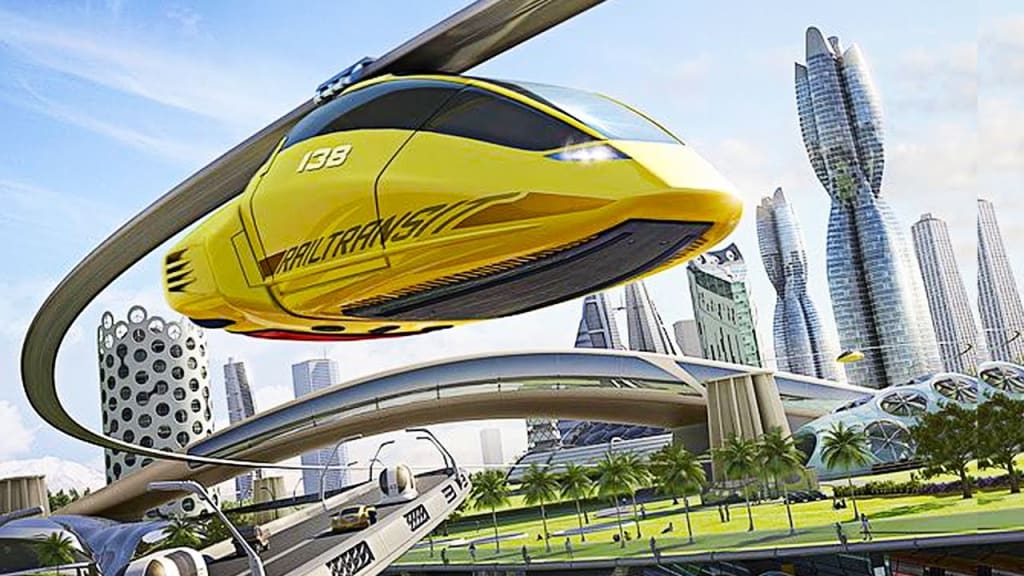The Future of Transportation: Innovations That Will Change the Way We Travel
Travel like this?

The world of transportation is evolving at a rapid pace, driven by technological advancements and the need for more sustainable and efficient modes of travel. From electric vehicles and autonomous cars to hyperloop systems and flying taxis, innovative solutions are reshaping the way we move from one place to another. In this article, we will explore the future of transportation and the groundbreaking innovations that will revolutionize the way we travel.
Electric Vehicles (EVs):
Electric vehicles have gained significant traction in recent years, offering a cleaner and more sustainable alternative to traditional combustion engine vehicles. With advancements in battery technology, EVs now have longer driving ranges and faster charging capabilities. As charging infrastructure improves and prices become more affordable, electric vehicles are expected to become the norm, reducing carbon emissions and dependence on fossil fuels.
Autonomous Vehicles (AVs):
Autonomous vehicles, also known as self-driving cars, have the potential to transform the way we commute and travel. These vehicles use advanced sensors, cameras, and artificial intelligence to navigate roads without human intervention. With the promise of increased safety, reduced congestion, and enhanced mobility for individuals who are unable to drive, AVs are poised to revolutionize transportation systems in the coming years.
Hyperloop Systems:
Hyperloop systems propose a new form of high-speed transportation that could revolutionize long-distance travel. This concept, envisioned by Elon Musk, involves capsules or pods traveling through near-vacuum tubes at speeds surpassing those of traditional trains. By eliminating air resistance and friction, hyperloop systems could drastically reduce travel times between cities, making distances that were once considered far more accessible.
Flying Taxis:
Imagine hailing a small, electric aircraft to take you directly to your destination, bypassing congested roads. This futuristic vision is becoming a reality with the development of flying taxis. These vertical takeoff and landing (VTOL) aircraft, powered by electric propulsion, have the potential to provide an efficient and environmentally friendly means of urban transportation. Companies like Uber, Airbus, and Volocopter are actively working on prototypes and testing the feasibility of this innovative mode of travel.
Maglev Trains:
Maglev trains use magnetic levitation technology to achieve high speeds and smooth rides. By eliminating physical contact between the train and the track, maglev trains can travel at extraordinary speeds, offering a faster and more energy-efficient alternative to traditional rail systems. Countries like Japan and China have already implemented maglev trains, and further advancements are expected in the coming years.
Personal Rapid Transit (PRT) Systems:
Personal Rapid Transit (PRT) systems are small, automated vehicles that transport individuals or small groups on demand. These systems operate on dedicated tracks or guideways and offer a convenient and flexible mode of transportation within urban areas. PRT systems reduce congestion, enhance accessibility, and provide a personalized travel experience.
Supersonic Travel:
Supersonic travel, which allows aircraft to fly faster than the speed of sound, is making a comeback. Companies like Boom Supersonic and Aerion Corporation are developing supersonic passenger aircraft that could cut travel times significantly. With advancements in aerodynamics and propulsion technology, supersonic travel may become a viable option for long-distance travel in the future.
Personal Mobility Devices:
Personal mobility devices, such as electric scooters and bicycles, are already transforming the last-mile transportation landscape. These compact, eco-friendly vehicles offer a convenient and efficient means of traveling short distances in urban areas. As cities become more bike-friendly and embrace micromobility solutions, personal mobility devices will play an increasingly important role in urban transportation.
Conclusion:
The future of transportation is filled with exciting possibilities and innovations that will redefine the way we travel. Electric vehicles, autonomous cars, hyperloop systems, flying taxis, maglev trains, personal rapid transit systems, supersonic travel, and personal mobility devices are just some of the groundbreaking advancements that will shape the transportation landscape in the years to come.
These innovations hold the potential to revolutionize mobility, making it more sustainable, efficient, and accessible. They have the capacity to reduce congestion, cut travel times, lower carbon emissions, and enhance overall transportation experiences. However, as with any technological advancement, there are challenges to address, including infrastructure development, safety considerations, and regulatory frameworks.
As we move toward a future of transportation that is more interconnected and sustainable, it is essential to continue investing in research and development, collaborate with policymakers and industry leaders, and prioritize the needs of communities and individuals. By embracing these innovations and fostering a holistic approach to transportation, we can create a future where travel is not only efficient but also environmentally friendly, enjoyable, and accessible for all.





Comments
Andrea Turai is not accepting comments at the moment
Want to show your support? Send them a one-off tip.